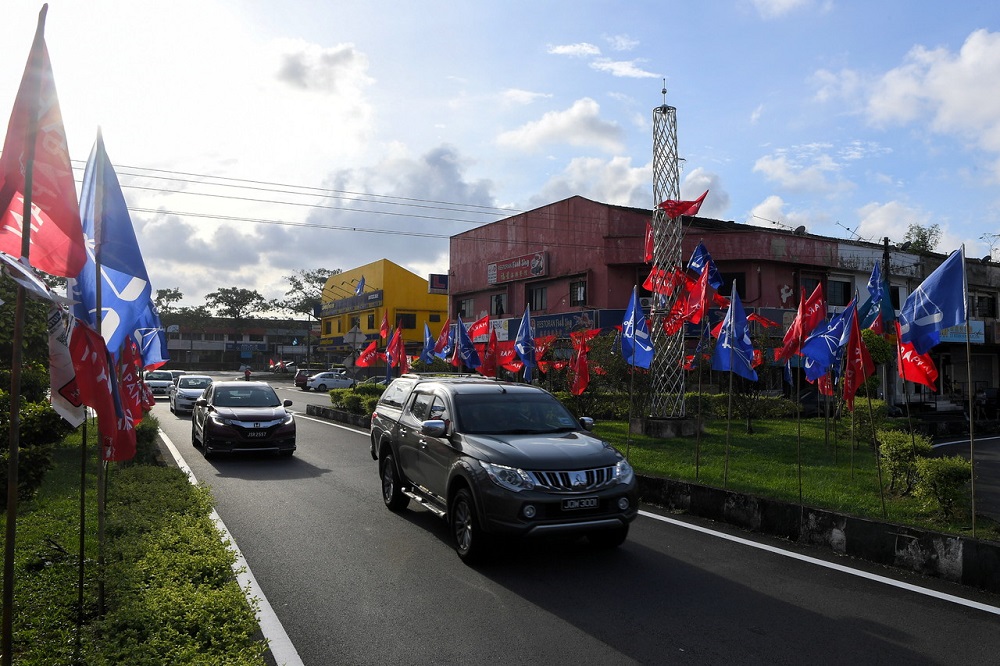JOHOR BARU, Feb 28 — At one morning engagement session between young people and a political party here recently, a university student stood up and asked a burning question to kick off the event.
Identifying herself as only Bella, the young woman asked what steps the party was taking to combat money politics and corruption, a menace which has been plaguing the country’s political arena for decades.
Despite her seemingly cautious and anxious tone, Bella rose with full confidence to ask a question which has also been playing in the minds of many but who lack the courage of this young lady in their search for the answer.
To be sure, this article is not about Bella but how corruption and other pressing issues are being tackled in the eyes of young people, especially among those who have become new voters in Johor following the implementation of Undi18, which includes the automatic registration of voters on reaching the age of 18.
Mujibu Abd Muis, a senior lecturer of the Faculty of Administrative Science and Policy Studies at Universiti Teknologi MARA (UiTM) Negri Sembilan, said it is crucial for political parties contesting in the Johor state election to understand the sentiment of youths if they wish to win their votes.
He felt that political parties should have a narrative that resonates with the young, so as to encourage them to go out and vote.
Mujibu said another challenge facing political parties is that young people especially those without any political background would be voting based on their perception of issues.
“I can see two matters here, (firstly) an offer or narrative close to the hearts of young people such as education, jobs, new economy creation, internet access, and access to information.
“Secondly, control of perception. This is most important among young people. Some might not have any experience because they were not involved in party politics, so they lack understanding of loyalty and base their decision on perception … how current issues are being played up in social media and how the government is resolving them,” he told Bernama.
Asked whether parties that dominate social media can control the narrative and perception of these young people, Mujibu said the traditional mode of campaigning is still considered the most effective in pulling in votes.
He said the most challenging part of campaigning via social media is that it is an open medium, which means whatever message being conveyed is not limited to any particular group of voters but open to anyone who has access to social media.
“Apart from this, the non-oral aspect of communication in politics is important … the body language and rhetoric cannot be put to good use in social media. In elections, (party) machinery plays an important role. In the Melaka state election, the machinery was not very effective. Certainly, a campaign needs the personal touch of candidates for voters to get the feel,” he said.
In the Johor polls on March 12, the Southern Tigers state will have the distinction of being the first to experience the impact of Undi18, which sees the addition of 749,731 new voters to the electoral rolls in the state.
According to the electoral rolls issued by the Election Commission (EC) on Jan 21, voters aged 18 to 39 comprise 50.12 per cent of the total of 2,597,742 voters in Johor.
Of this 50.12 per cent, 173,177 voters or 6.67 per cent are in the 18-20 age group while 21.86 per cent or 567,768 voters are aged between 21 and 29.
Of the 239 candidates contesting in the Johor polls, eight are in the 21-29 age group while 52 are in the 30-39 age group.
Meanwhile, election analyst Dr G. Manimaran said a section of the new voters might be sceptical and cautious in making their decisions in the Johor polls, due to disappointments with political developments since 2018 and deep concerns over the impact of the Covid-19 pandemic.
“There are two possibilities. One (tendency) for new voters to pick a non-governing party. (But) and two, it depends on how the ruling party and opposition parties come up with pledges that can win the hearts of new voters.
“So, there is a need for a high-impact strategy to attract all groups of society to go out and vote. There must be active participation involving every voter. All stakeholders should play a role in this matter,” said Manimaran, a former member of the Electoral Reform Committee.
Describing the Johor polls as an interesting case study, he said it would serve as a reflection of where the politics, new government and new hope as desired by the younger generation was headed. — Bernama



















